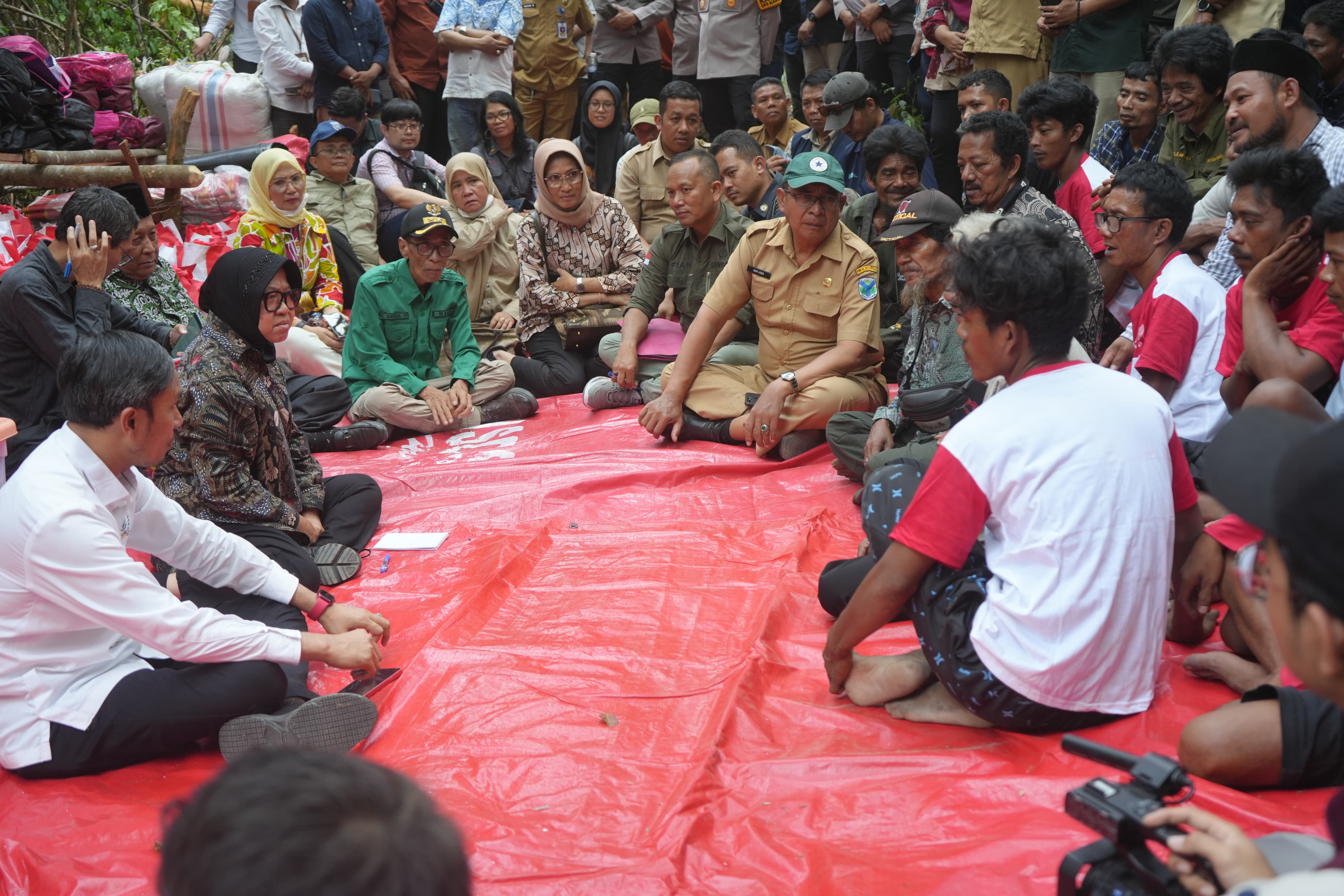Minister of Social Affairs Faces Difficult Terrain to Meet Suku Anak Dalam, Here’s the Assistance Provided

BATANGHARI (August 20, 2024) –
Minister of Social Affairs Tri Rismaharini undertook a challenging journey to
deliver aid to Suku Anak Dalam (SAD), who live deep within the forests of
Hajran Village, Batanghari Regency, Jambi Province, on Tuesday (20/8/2024). Suku Anak Dalam, also known as Orang Rimba, is currently undergoing its
tradition of “melangun,” a nomadic practice of relocating due to mourning,
usually after the death of a group member.
Minister Risma visited two
locations that serve as temporary settlements for Suku Anak Dalam. The
first location was within an oil palm plantation owned by a company, while the
second was in an industrial forest area. The journey started from Simpang Koto
Boyo, a settlement located along the Muara Tembesi-Sarolangun road. The
Minister's group had to travel two hours to reach the first location. The route
was quite difficult, with unpaved and dusty roads, steep descents, and sharp
inclines in several areas. Vehicle speeds had to be limited to 30 kilometers
per hour due to road damage, and only high-clearance vehicles could navigate
the route.
Minister Risma acknowledged that
delivering aid to Suku Anak Dalam faces significant challenges. Aside from
the difficult terrain, the nomadic lifestyle of Suku Anak Dalam poses its
own obstacles. “Yesterday, we had difficulty finding Suku Anak Dalam. It wasn’t
until late afternoon that we were able to meet them,” Minister Risma said,
explaining the experience of her staff from the Ministry of Social Affairs when
they searched for Suku Anak Dalam in Batanghari Regency. She emphasized the
urgency of distributing aid, given the unpredictable weather conditions that
make it harder for Suku Anak Dalam to obtain food supplies.
During their “melangun” period, Suku Anak Dalam set up simple tarpaulin tents tied to trees, with no walls,
flooring, mattresses, or pillows. Despite their nomadic lifestyle, some members
now own motorcycles. However, the tradition of relocation has left some without
identity cards, preventing them from being registered as social aid recipients.
Minister Risma is working to persuade Suku Anak Dalam to undergo data
recording while respecting local wisdom that prohibits photographing women and
female adolescents. This data collection process will involve cooperation
between local governments and MoSA.
“We have groups where most
members already have identity cards (KTP) and family certificates (KK), although some
still do not. So, it’s not 100% covered,” said Tumenggung Ngalembo, the leader
of Suku Anak Dalam. Minister Risma met with several groups at two different
locations. At the first location, she met with Tumenggung Ngalembo, Tumenggung
Ngalembu, and Tumenggung Jelitai. At the second location, she met and held
discussions with Tumenggung Nyenong, Tumenggung Minang, and Tumenggung Ngirang.
MoSA provided various types of
aid to Suku Anak Dalam, including 270 tarpaulin units, 125 mats, 250
mattresses, 500 blankets, 135 portable family tents, and one dome/main tent.
Clothing assistance was also distributed, including sarongs for men and women,
underwear, towels, children’s clothing, and adult clothing. Additionally, basic
food supplies, personal hygiene items, educational play tools, children's
nutrition, and sports equipment were provided. The aid was distributed to 125
families from two groups of Suku Anak Dalam.
 English
English
 Bahasa
Bahasa
